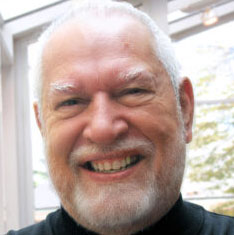In his weekly clinical update Dr. Griffin discusses detection of a highly divergent type 3 vaccine-derived poliovirus in a child with a severe primary immunodeficiency disorder, severe respiratory illnesses associated with rhinoviruses and/or enteroviruses including EV-D68, effects of vaccination and previous infection on Omicron infections in children, COVID-19-associated hospitalizations among vaccinated and unvaccinated adults 18 years or older in 13 US states, effectiveness of COVID-19 vaccines over time prior to Omicron emergence in Ontario, Canada, nasal IgA wanes 9 months after hospitalization with COVID-19 and is not induced by subsequent vaccination, resistance of SARS-CoV-2 Omicron subvariant BA.4.6 to antibody neutralization, persistent circulating SARS-CoV-2 spike associated with post-acute COVID-19 sequelae, and impact of COVID-19 vaccination on the risk of developing long-covid and on existing long-covid symptoms.
In his weekly clinical update Dr. Griffin discusses variant influenza virus infections: recommendations for identification, treatment, and prevention for summer and fall 2022, low levels of monkeypox virus neutralizing antibodies after MVA-BN vaccination in healthy individuals, using the right tools at the right time for SARS-COV-2 infection, onset and window of SARS-COV-2 infectiousness and temporal correlation with symptom onset, transmission of SARS-COV-2: a review of viral, host, and environmental factors, antibody persistence and safety through 6 months after heterologous orally aerosolized Ad5-nCoV in individuals primed with two-dose vaccine, timely administration of tocilizumab improves outcome of hospitalized COVID-19 patients, administration of anti–SARS-COV-2 monoclonal antibodies after US Food and Drug Administration deauthorization, and clinical and genetic risk factors for acute incident venous thromboembolism in ambulatory patients with COVID-19.
In his weekly clinical update Dr. Griffin discusses vaccine effectiveness against influenza illness in children, clinical manifestations of infection with poliovirus, spike protein-independent attenuation of SARS-CoV-2 Omicron variant in laboratory mice, concordance of SARS-CoV-2 results in self-collected nasal swabs vs swabs collected by health care workers in children and adolescents, probable animal-to-human transmission of SARS-CoV-2 causing a pet shop-related outbreak, laboratory-confirmed COVID-19–associated hospitalizations among adults during BA.2 variant, SARS-CoV-2 specific T-cells and antibodies, Nirmatrelvir use and outcomes during the Omicron surge, real-world effectiveness of early Molnupiravir or Nirmatrelvir–ritonavir in hospitalized patients, and distinguishing features of long COVID.
In his weekly clinical update Dr. Griffin discusses antibody response against nonpoliovirus enteroviruses, clinical presentation and virological assessment of confirmed human monkeypox virus cases in Spain, object and surface contamination with monkeypox virus, monkeypox virus infection in humans across 16 countries, clinical characteristics of ambulatory and hospitalized patients with monkeypox virus infection, compassionate use of Tecovirimat for the treatment of monkeypox infection, monitoring of Pfizer-BioNTech vaccine among children, Pfizer and BioNTech announce updated vaccine data supporting efficacy in children, direct capture of neutralized RBD enables rapid point-of-care assessment of SARS-CoV-2 neutralizing antibody titer, Pfizer and BioNTech submit application for bivalent vaccine, and Oral Nirmatrelvir and Ritonavir in non-hospitalized vaccinated patients with COVID-19.
In his weekly clinical update Dr. Griffin discusses the public health response to a polio case in a unvaccinated NY state resident, human to dog transmission of monkeypox virus, Tecovirimat and the treatment of monkeypox, detection of asymptomatic monkeypox virus infections among male sexual health clinic attendees in Belgium, what to do if you are exposed to SARS-CoV-2 and isolation and precautions for people with COVID-19, risk of SARS-CoV-2 infection in health care workers, effectiveness of HEPA filters at removing infectious SARS-CoV-2 from the air, Pfizer reports additional data on Paxlovid, hospitalization encounters for infection after Paxlovid, a randomized trial of Metformin, Ivermectin, and Fluvoxamine, and readmissions, post-discharge mortality and sustained recovery among patients admitted to hospital with COVID-19.
In his weekly clinical update Dr. Griffin discusses guidance for prevention and treatment of monkeypox, post-infectious symptoms among children and adolescents, profiling post-infectious syndromes of different variants, comparison of vaccine Ankara vs intradermal routes of administration, infection in vaccinated individuals treated with or without PAXLOVID, duration of symptoms with positive rapid antigen after infection, epidemiologic characteristics of monkeypox, and sequelae of post-acute infection.
In his weekly clinical update Dr. Griffin discusses Tecovirimat for treatment of monkeypox, the safety and acceptance of vaccination after multisystem inflammatory syndrome, variants in solid organ transplant recipients, masks for prevention of respiratory virus infections, pre-exposure prophylaxis with Evusheld, the association between Evusheld administration and infection, if repeat administration of casirivimab and imdevimab is well-tolerated, viral and symptom rebound in untreated infection, extended Remdesivir infusion for persistent infection, Baricitinib in patients admitted with infection, and cognitive impairment 13 months after hospitalization.
In his weekly clinical update Dr. Griffin discusses monkeypox virus infection in humans across 16 countries, pregnancy outcomes after SARS-CoV-2 infection by trimester, vaccination intent and belief, antiviral drug treatment for non-severe disease, the association of smoking with infected hospitalized patients, the association of Paxlovid on negative conversion rates among high-risk patients with COVID-19, safety and efficacy of Molnupiravir, usage of enoxaparin for primary thromboprophylaxis, statin and aspirin as therapy in infected patients, post-COVID-19 conditions among children 90 days after SARS-CoV-2 Infection, and symptoms and risk factors for long COVID in non-hospitalized adults.
In COVID-19 clinical update #124, Dr. Griffin discusses the results of a variant vaccine booster trial, the neutralization of variant sub-lineages by Novavax, the CDC’s recommendation of Novavax’s COVID-19 vaccine in adults, Paxlovid in patients who are immunocompromised and hospitalized, and inhaled fluticasone for outpatient treatment.
In COVID-19 clinical update #123, Dr. Griffin discusses rapid diagnostic testing in response to the monkeypox outbreak, leading causes of death in the US during the COVID-19 pandemic, antibody evasion by subvariants, broadly-neutralizing antibodies against emerging variants, factors associated with severe outcomes among hospitalized immunocompromised adults, measurement of the burden of hospitalizations during the pandemic, parental vaccine hesitancy in diverse communities, evaluating saliva sampling to improve access to diagnosis in low-resource settings, oral sabizabulin for high-risk hospitalized adults, lower-risk of multisystem inflammatory syndrome in children, and neurovascular injury with complement activation and inflammation during infection.





